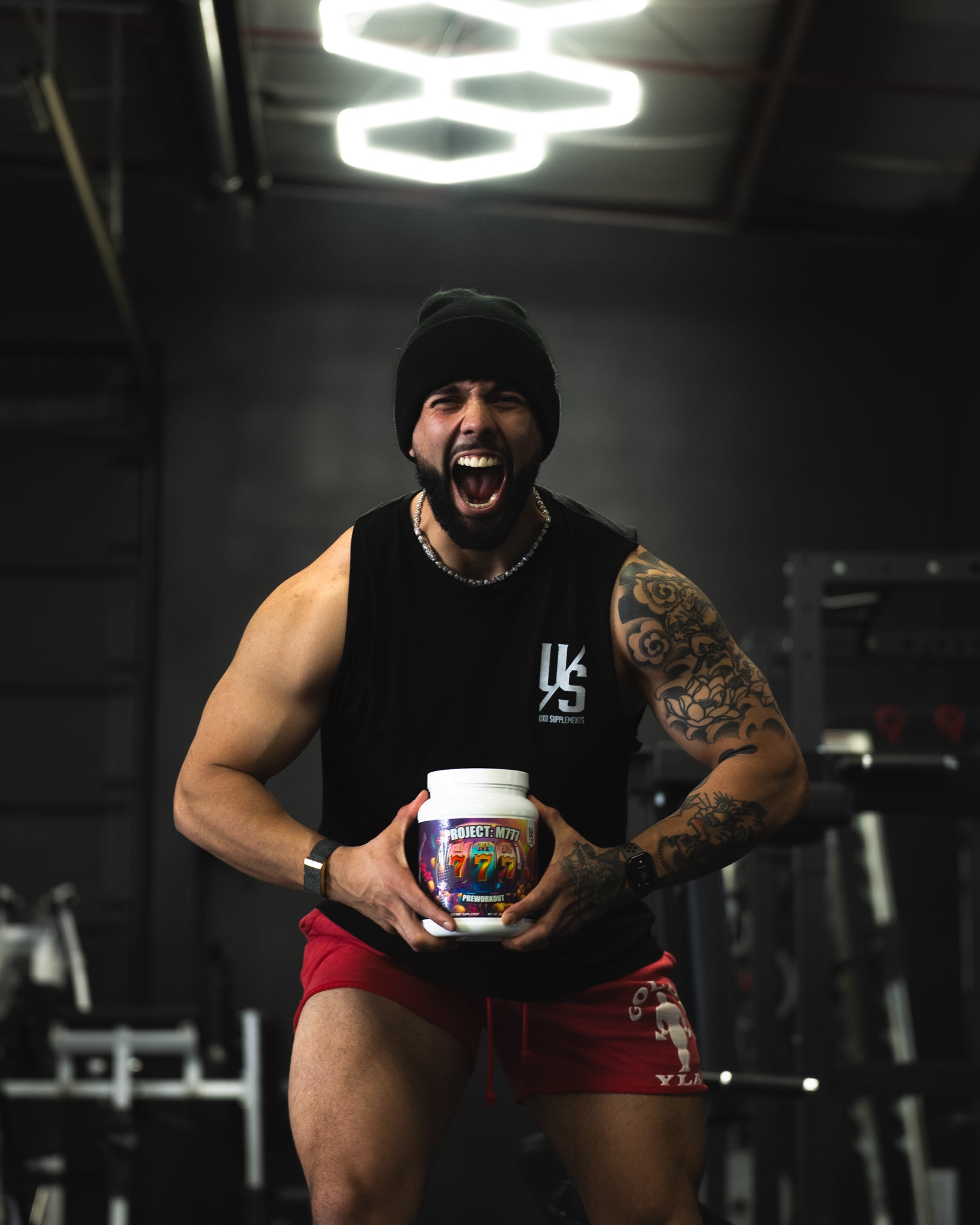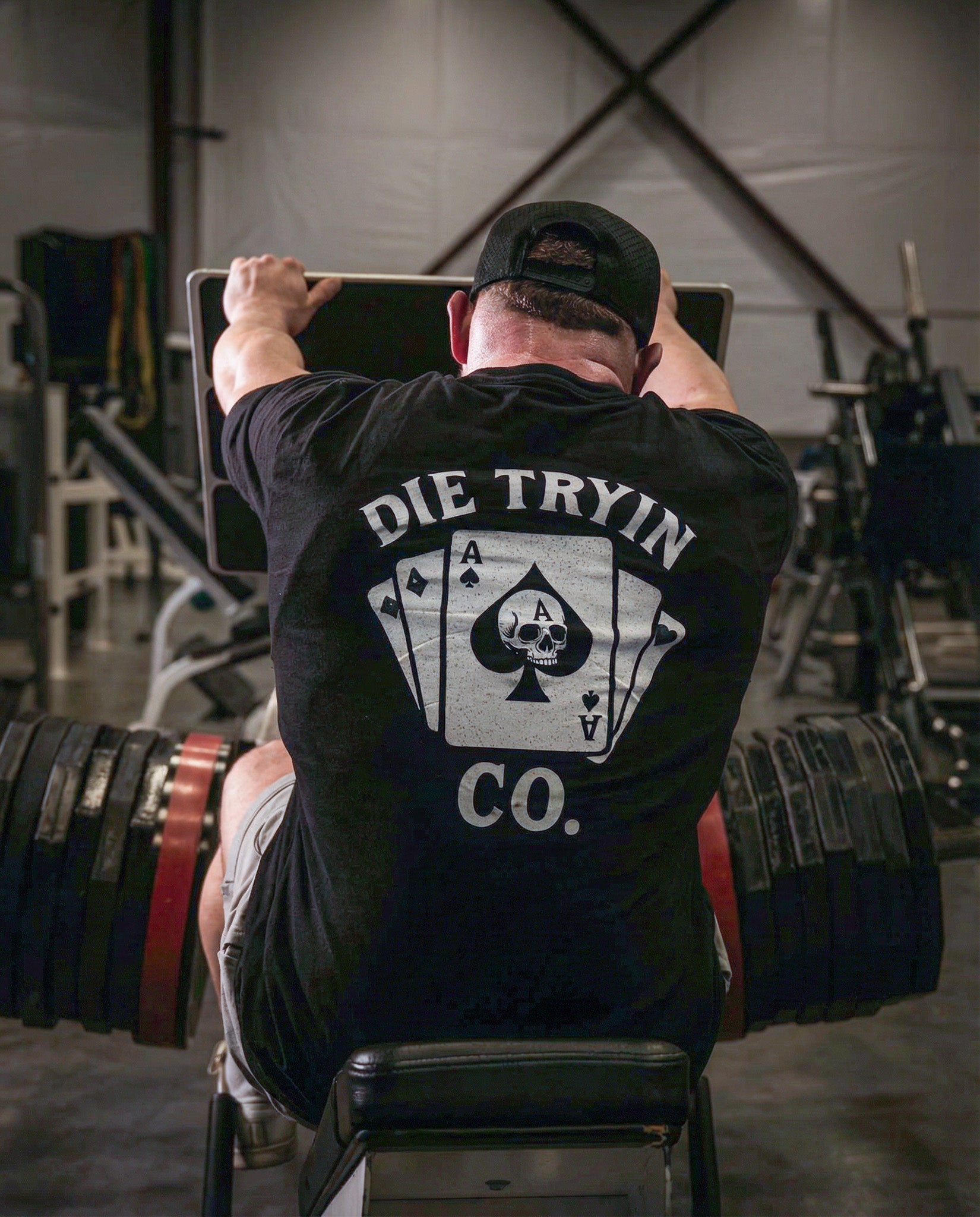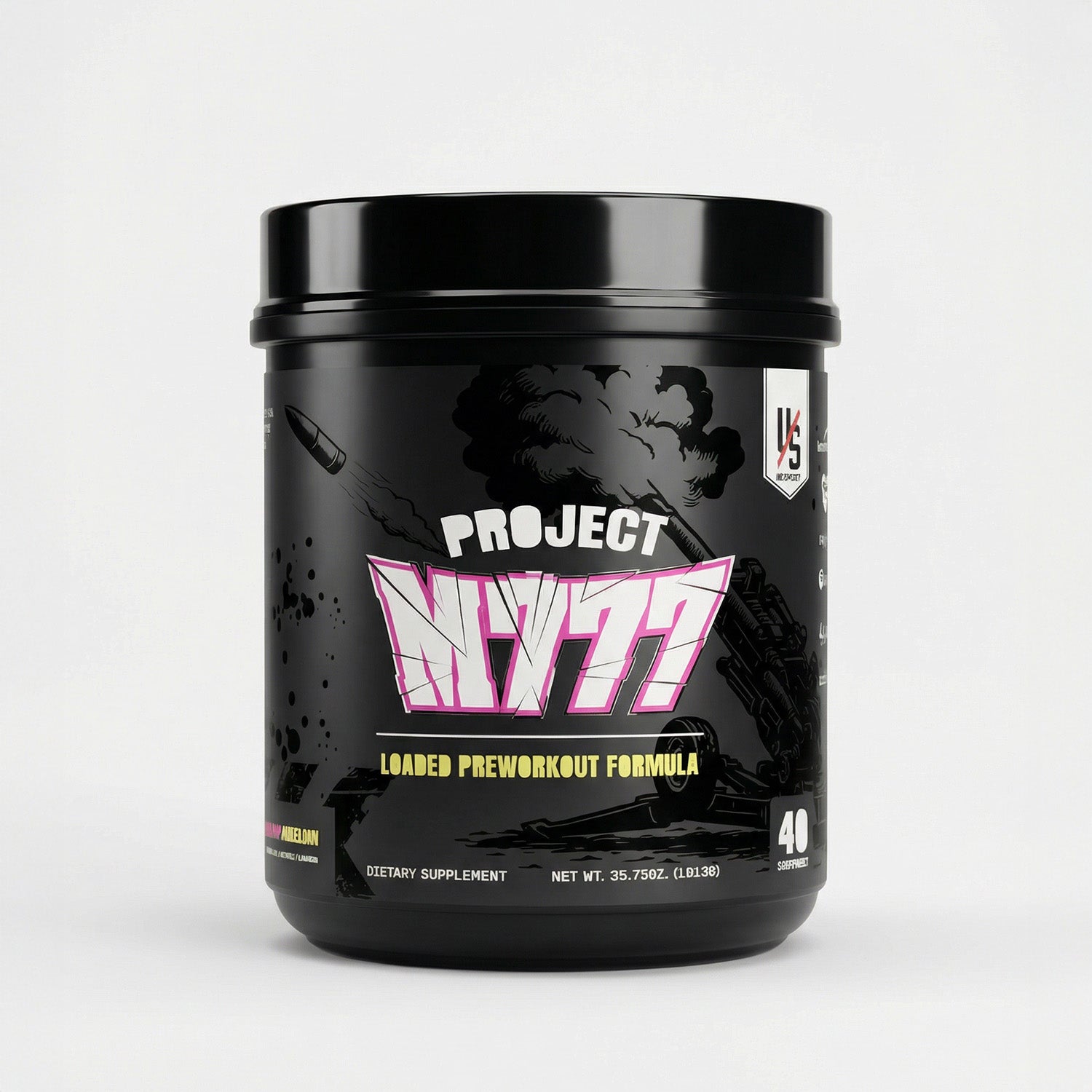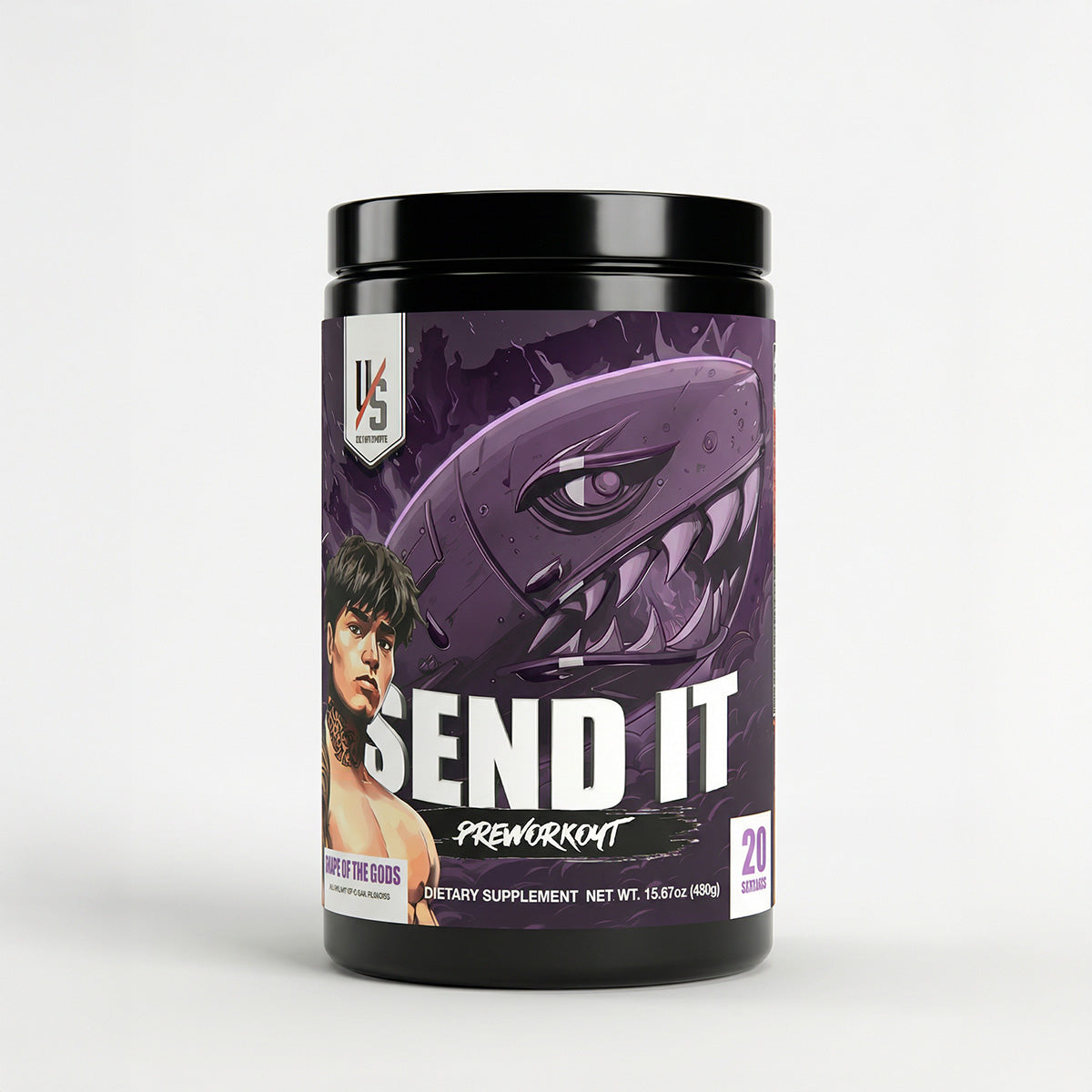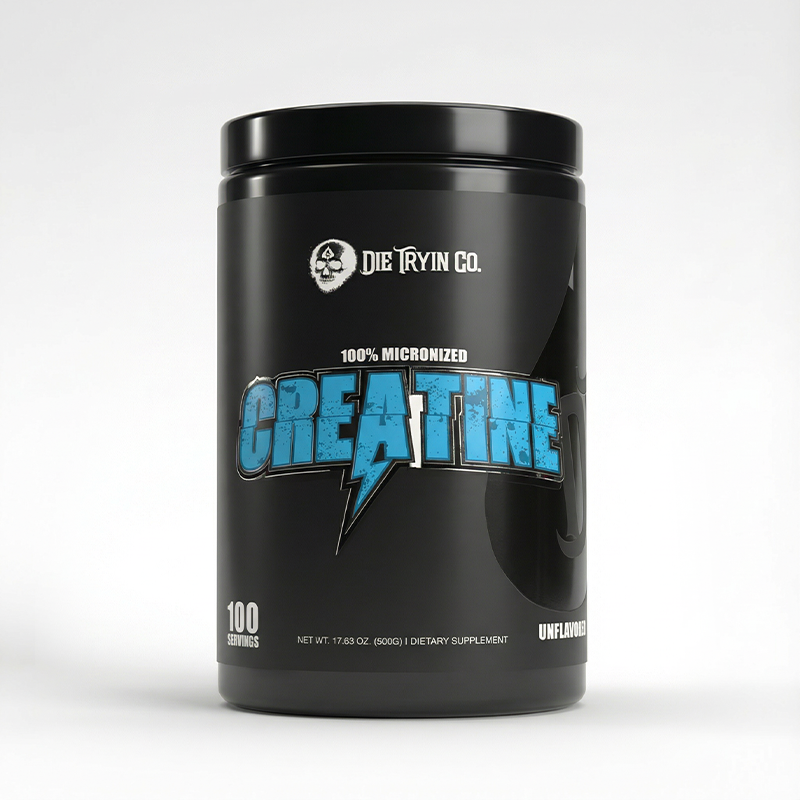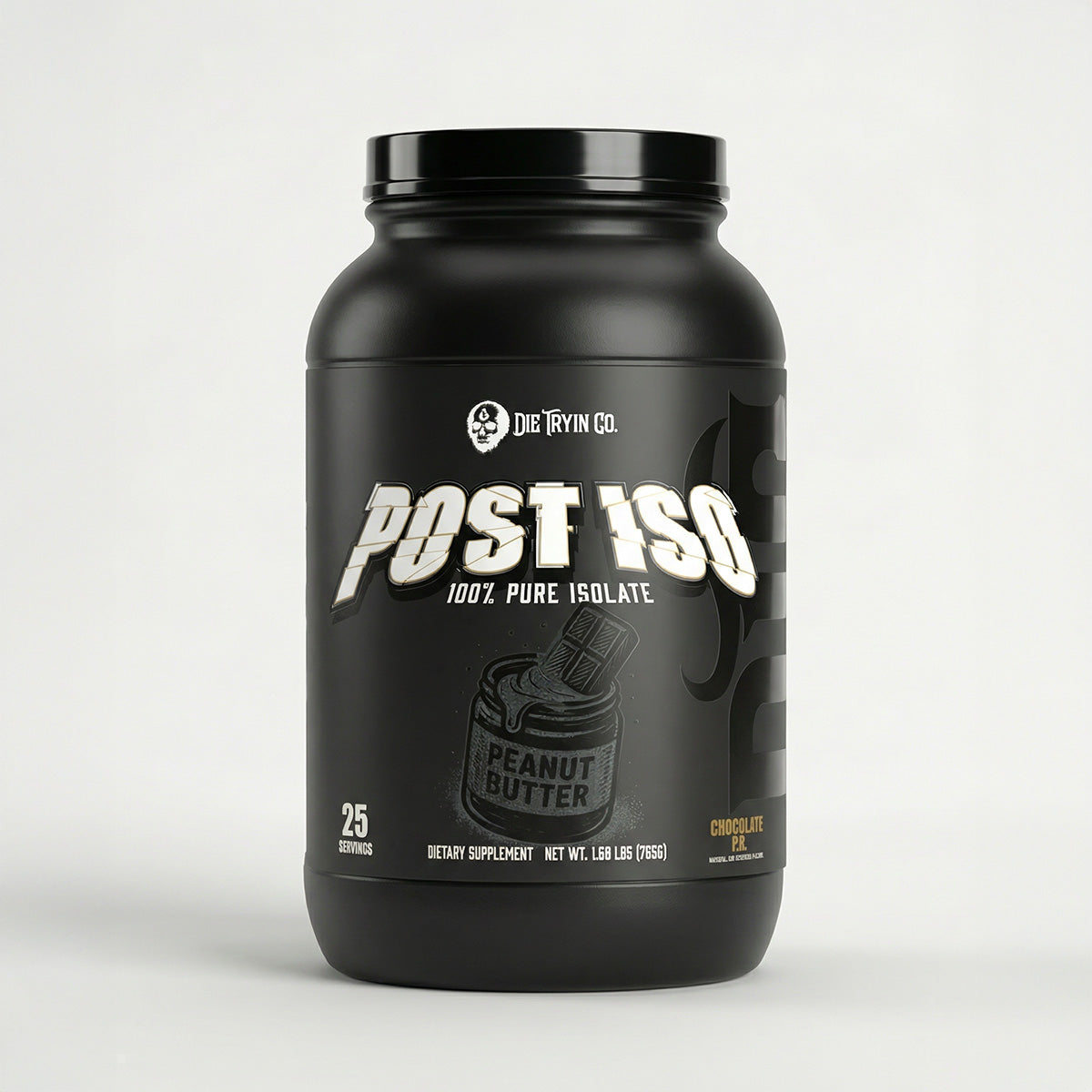THE ATHLETE’S GUIDE TO FUELING: CARBS, FATS & PROTEIN FOR STRENGTH + ENDURANCE
When you train with intent — whether you’re chasing a PR on the platform or grinding through a long conditioning block — your body isn’t just burning calories. It’s managing fuel systems. How well those systems are supplied determines everything: how strong you feel, how long you last, and how fast you recover.
Most athletes don’t fail because of effort or programming.
They fail because they’re under-fueled, poorly timed, or guessing their way through nutrition.
This guide breaks down the three macronutrients that drive performance and how to use each one strategically to train harder, recover faster, and perform like someone who refuses to quit — the Die Tryin way.
1. CARBOHYDRATES: THE ATHLETE’S PRIMARY FUEL
When intensity rises, your body defaults to carbs. They are the fastest, cleanest, and most readily available source of usable energy — and they directly determine performance output.
Why Carbs Matter So Much
They power explosive strength work
They extend endurance during long sessions
They spare muscle protein from being used as fuel
They replenish glycogen, which drives performance AND recovery
Low carbs = low output.
Athletes who constantly feel “flat,” gassed out, or weak mid-workout usually aren’t lacking motivation — they’re lacking glycogen.
How to Use Carbs for Performance
Pre-Workout (60–90 min before):
25–60g fast-digesting carbs
Ideal for strength & conditioning days
Intra-Workout:
15–30g carbs per hour of intense training
Enhances endurance, reduces fatigue, and maintains power output
This is where a performance carb product like Fuel Point becomes invaluable — steady glucose, zero crash.
Post-Workout:
30–60g carbs paired with protein to restore glycogen and support muscle repair
Carbs aren’t the enemy. For athletes, they’re the difference between surviving a workout and dominating it.
2. PROTEIN: THE CONSTRUCTION MATERIAL FOR MUSCLE
Protein is not a fuel source — it’s the raw material your body uses to repair tissue, build new muscle, support immune function, and maintain lean mass during heavy training phases or cuts.
Why Protein Matters
Repairs training-induced muscle damage
Supports strength adaptation
Helps maintain muscle while dieting
Improves satiety and stabilizes appetite
Daily Intake
The research is crystal clear:
0.8–1g of protein per pound of bodyweight is the sweet spot for most hard-training athletes.
Best Times to Consume Protein
Post-workout: 25–40g of high-quality protein (isolates absorb fastest)
Before bed: slow-digesting protein can support overnight recovery
Throughout the day: aim for 3–5 protein-rich meals
Consistent protein intake sets the foundation for growth — supplements like Post ISO just make getting there easier.
3. FATS: THE SLOW-BURN FUEL & HORMONE SUPPORT SYSTEM
Fats don’t get enough respect in performance nutrition. They’re not just “extra calories” — they’re essential for hormone production, joint health, and long-duration aerobic work.
Why Fats Matter
Support testosterone and hormone regulation
Fuel low-intensity/long-duration efforts
Improve joint and brain function
Slow digestion for sustained energy
Daily Intake
Most athletes perform best when 20–30% of total calories come from healthy fats:
Avocado
Olive oil
Salmon
Nuts & seeds
Whole eggs
Fats keep your hormonal engine running—critical for strength, recovery, and longevity.
MACRONUTRIENT TIMING: WHEN YOU EAT MATTERS
Fuel timing isn’t complicated, but it’s underrated. Here’s the simplest and most effective approach:
Pre-Workout
Carbs for fuel
Protein for muscle protection
Minimal fats (they slow digestion)
Intra-Workout
Fast carbs during long or high-volume training
Electrolytes to maintain hydration and cramp prevention (Aqua Spike fits perfectly here)
Post-Workout
Carbs to replenish glycogen
Protein to kickstart recovery
Athletes who time fuel properly recover faster, train harder, and maintain more muscle across all phases.
COMMON FUELING MISTAKES ATHLETES MAKE
Most people sabotage their performance by:
Training fasted
Eating too low-carb
Neglecting intra-workout fuel
Under-consuming protein
Fear of fats
Relying on energy drinks instead of actual nutrition
These mistakes don't just slow progress—they build plateaus.
THE BOTTOM LINE: YOUR BODY ISN’T A MACHINE — IT’S A HIGH-PERFORMANCE ENGINE
When you train like an athlete, you need to fuel like one.
Carbs drive intensity.
Protein drives recovery.
Fats drive hormonal balance and long-term durability.
You can’t out-train bad fueling.
And you can’t reach your potential under-fed.
The Die Tryin mindset isn’t just about grinding harder — it’s about giving your body the resources it needs to deliver when the work gets heavy.
Example Workout
Biceps Growth Routine (Beginner Friendly):
- Straight Bar Curl – 4 sets of 8–10 reps
- EZ Bar Curl – 3 sets of 10–12 reps
- Hammer Curl (dumbbells) – 3 sets of 12–15 reps
Keep your elbows tight, control each rep, and focus on squeezing your biceps at the top.
The Takeaway
Both bars will build your biceps.
- Straight bar = slightly more pure biceps work.
- EZ bar = easier on your joints and better for long-term progress.
- The best choice? Whichever one helps you lift pain-free and push hard.
Pair that training with solid recovery and good nutrition (your Post ISO protein shake after workouts, for example), and your arms will grow — no matter which bar you pick.
Featured product
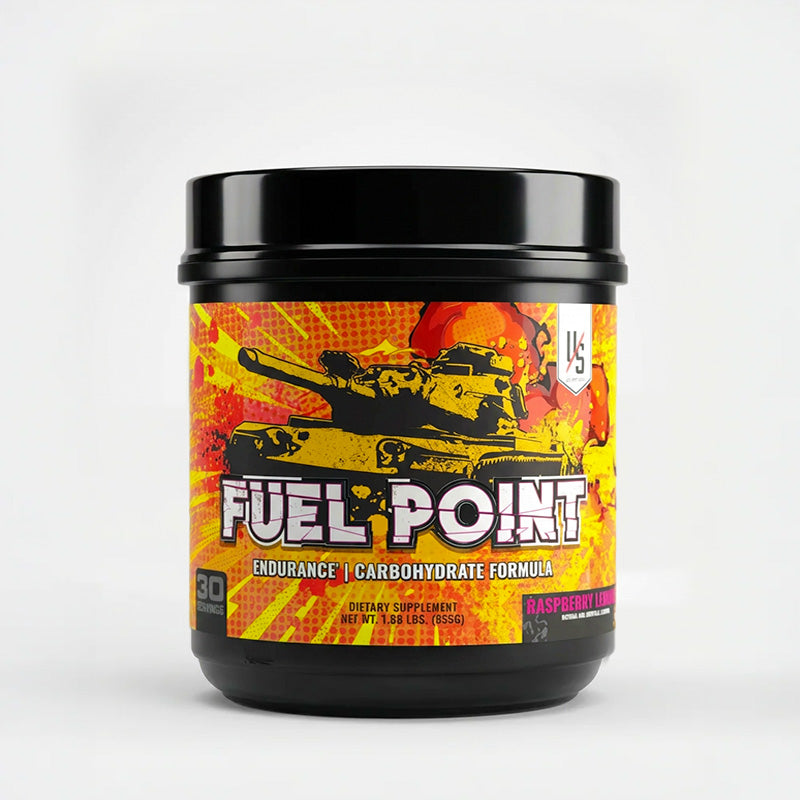
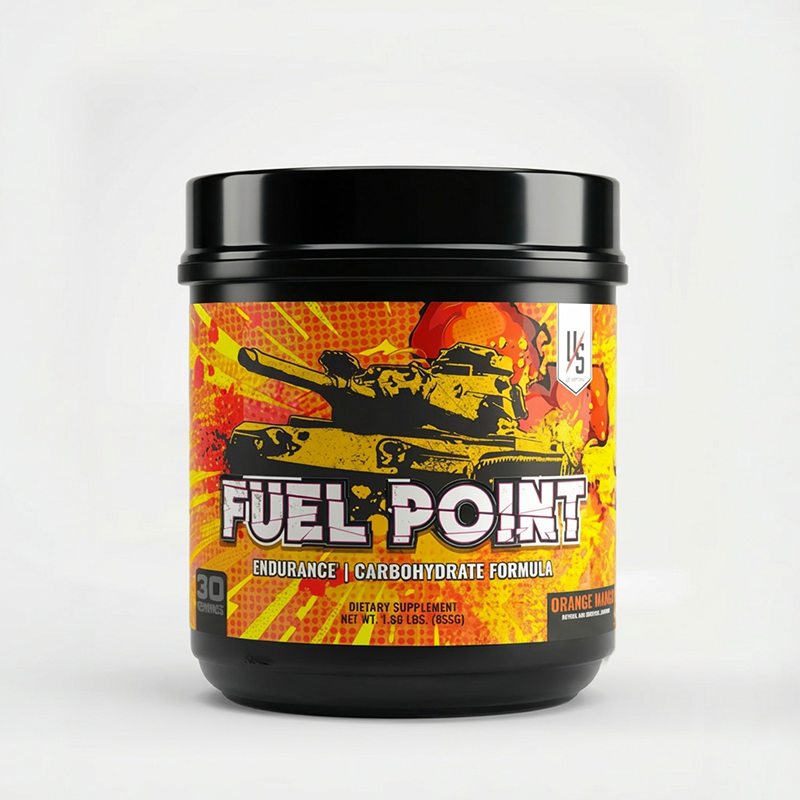




Designed for endurance athletes or those pushing limits in the gym. Get more our of your workout with Fuel Point.
Pickup available at 11880 W. President Dr. Suite D
Usually ready in 24 hours

Fuel Point
Raspberry Lemonade
11880 W. President Dr. Suite D
11880 W President Dr
Suite D
Boise ID 83713
United States
The essentials
Share details of your store's product selection, or share a story that speaks to your customers.
Read more
In a world where comfort often reigns supreme, the idea of voluntarily subjecting oneself to icy waters might seem absurd. However, proponents of cold plunges swear by their transformative health ...

Strength training, which usually involves exercises to make muscles bigger and stronger, is now known for its positive effect on how long top athletes can keep going in endurance sports. Before, a...

